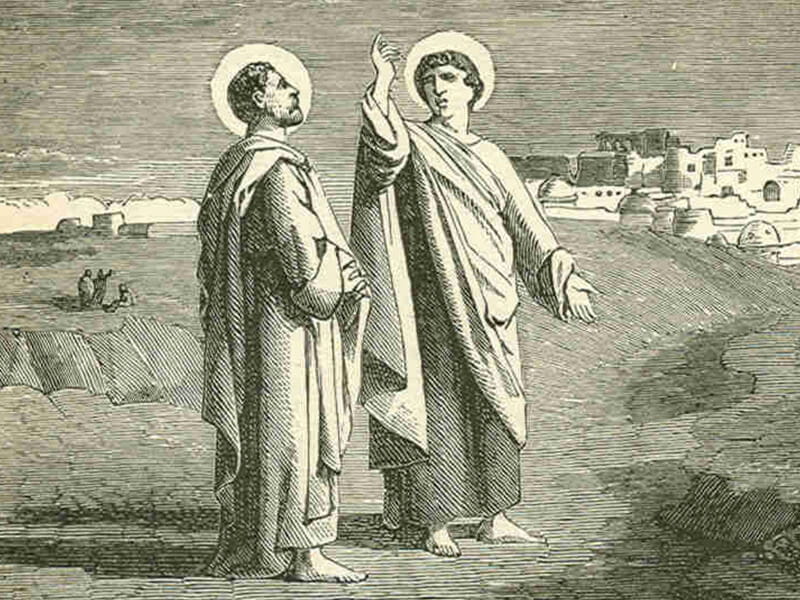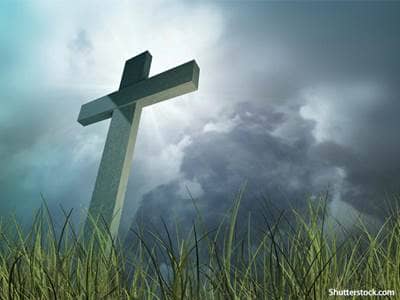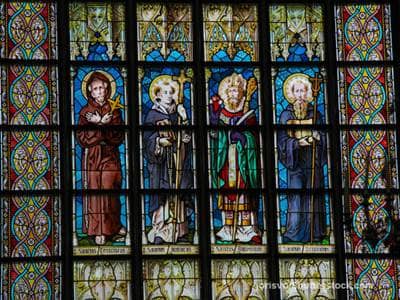Sts. Simon and Jude

Jude is so named by Luke and Acts. Matthew and Mark call him Thaddeus. He is not mentioned elsewhere in the Gospels, except, of course, where all the apostles are referred to. Scholars hold that he is not the author of the Letter of Jude. Actually, Jude had the same name as Judas Iscariot. Evidently because of the disgrace of that name, it was shortened to "Jude" in English.
Simon is mentioned on all four lists of the apostles. On two of them he is called "the Zealot." The Zealots were a Jewish sect that represented an extreme of Jewish nationalism. For them, the messianic promise of the Old Testament meant that the Jews were to be a free and independent nation. God alone was their king, and any payment of taxes to the Romans—the very domination of the Romans—was a blasphemy against God. No doubt some of the Zealots were the spiritual heirs of the Maccabees, carrying on their ideals of religion and independence. But many were the counterparts of modern terrorists. They raided and killed, attacking both foreigners and "collaborating" Jews. They were chiefly responsible for the rebellion against Rome which ended in the destruction of Jerusalem in A.D. 70.
-
St. John Francis Regis (1597-1640)
-
Servant of God Francis Garces and Companions (c. 1781)
-
Blessed Adolph Kolping (1813-1865)
-
Blessed John Francis Burte and Companions (d. 1792; d. 1794)
-
St. Agatha (d. 251?)
-
St. Oliver Plunkett (1629-1681)
-
St. Thomas the Apostle
-
St. Adrian of Canterbury (d. 710)
-
Assumption of Mary
-
Sts. Pontian and Hippolytus (d. 235)


